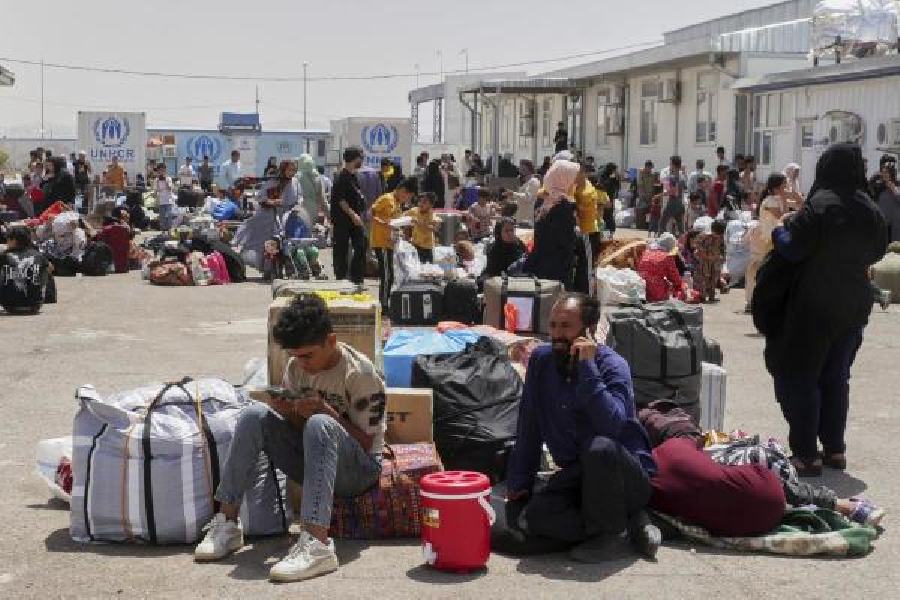No more evening walks. No more jobs at the supermarket. No more hopes for school.
As three Afghan sisters returned to Afghanistan after being deported from Iran last week, the reality of what they had once enjoyed and was now out of reach sank in amid their sighs and dwindling claims of defiance.
Marwa, 18, noted they should start by getting head scarves and outfits to cover themselves, which they didn’t have.
“Afghanistan is like a cage for women, and we’re coming back to that cage,” said Khurshid, 17, the youngest of the three and a self-taught painter.
Iran’s mass deportation of more than 1.4 million Afghans this year has shattered the hopes of women and girls working and studying in Iran. Neighbouring Pakistan has implemented a similar policy, putting at risk the lives of many other women who fled Afghanistan in the wake of the Taliban takeover in 2021.
Some of the world’s most severe restrictions on women and girls await. Under the new Afghan government, it is against the law for girls to study beyond sixth grade. Women cannot hold most jobs or go to public spaces like parks, nor travel long distances without a male companion.
Khurshid, 17, defied Taliban orders to wear a hijab at the border crossing. But one of her sisters acknowledged that they would have to dress differently in Afghanistan.
In recent months a growing number of single women, female-headed households and unaccompanied minors have been deported or forced to return from Iran.
They include 15-year-old girls split from their parents and deported on their own; wives travelling on their own as their husbands hide in Iran and try to keep jobs; and single mothers struggling to speak about the police beatings or sexual abuse they faced at the hands of Iranian landlords and employers.
“The needs are very high for gender-based violence and mental health, and our resources very limited,” said Sunita, who works near the border for a humanitarian agency. She asked, like most women who spoke for this article, to be identified by one name for safety reasons.
Upon the women’s return to western Afghanistan, social workers have tried to prepare teenagers and women who were born in Iran or lived there for years about the restrictions they would face.
Khurshid arrived in Afghanistan, at the Islam Qala border crossing, wearing torn denim overalls and trendy sneakers. She said she draws her style from an Iranian influencer and an Afghan celebrity living in Dubai whom she follows on TikTok.
When Taliban guards overseeing the relocation facility in Islam Qala commanded Khurshid to wear a hijab last week, she rejected the orders, telling them, “I like the way I am”. Marwa acknowledged that the sisters, including the eldest, Behishta, 19, would have to buy head scarves and head-to-toe outfits.









